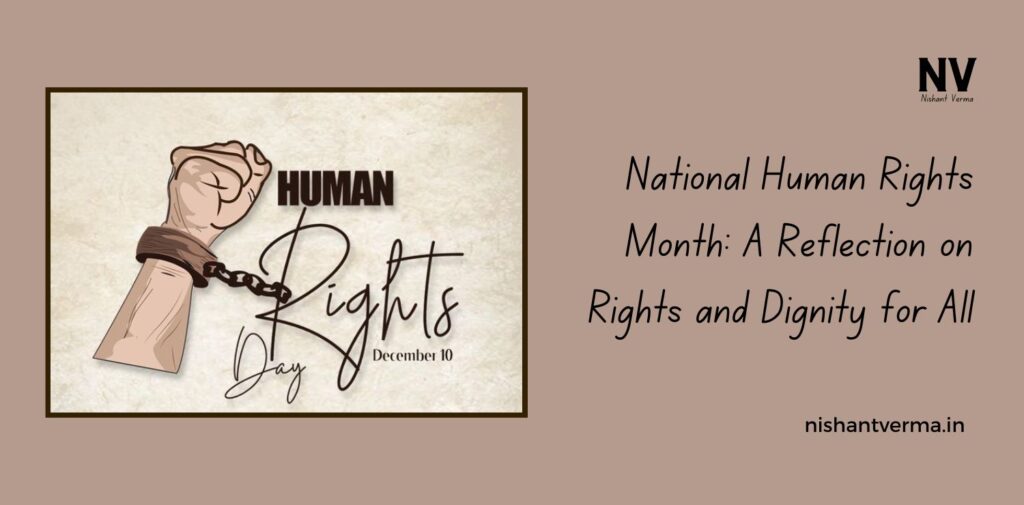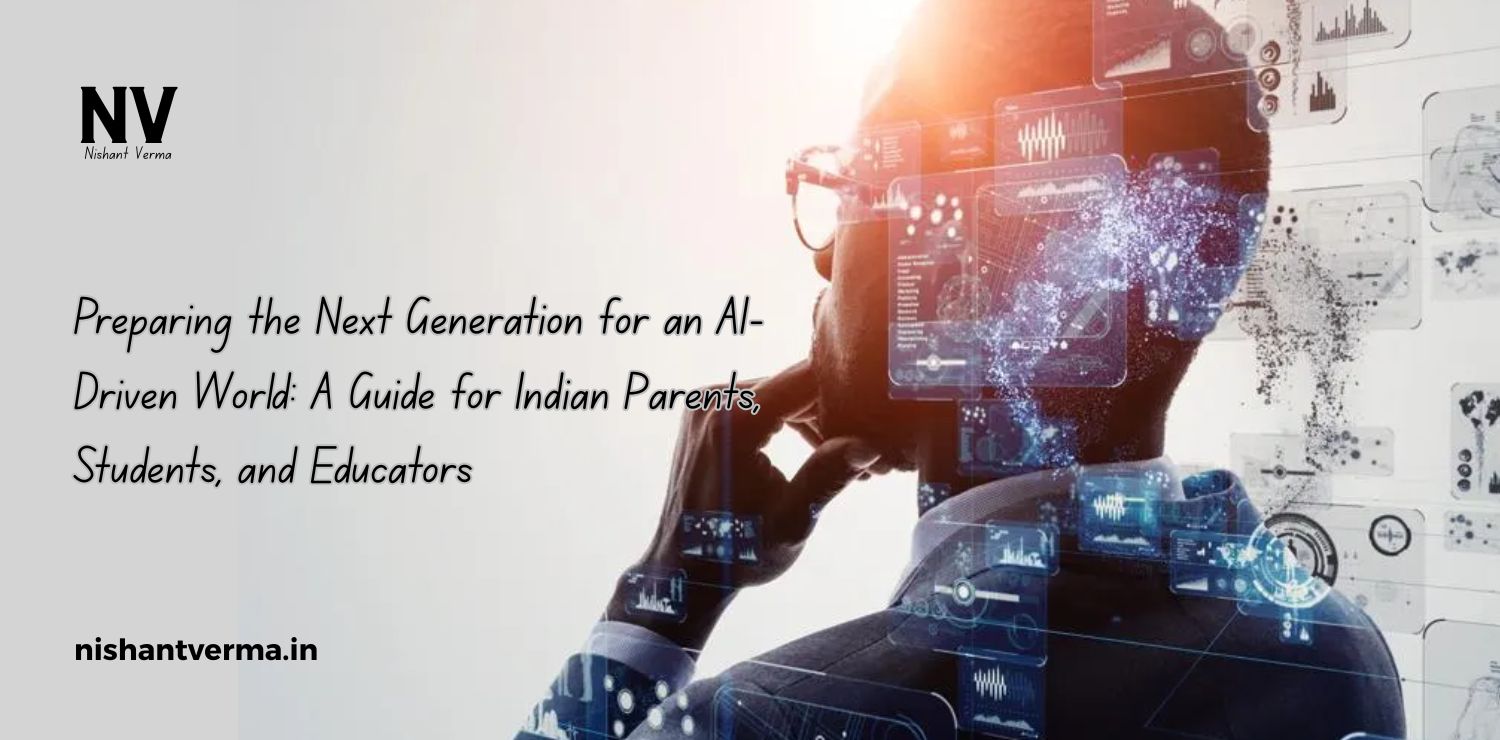In India, as well as across the globe, human rights are the cornerstone of justice and equality. National Human Rights Month is a time dedicated to reflecting on the importance of ensuring that every individual’s rights are upheld, and that the principles of freedom, dignity, and equality are recognized universally. In this article, we will explore the concept of National Human Rights Month, its significance, and the importance of celebrating human rights in India.
What is National Human Rights Month?
National Human Rights Month is celebrated annually during December in various countries around the world, including India. This month is particularly significant because it coincides with the adoption of the Universal Declaration of Human Rights (UDHR) by the United Nations General Assembly on December 10, 1948. The UDHR is a key document that outlines the basic human rights and freedoms to which all people are entitled, regardless of their race, religion, nationality, or any other status.
In India, National Human Rights Month is an opportunity to reflect on the progress made in the protection and promotion of human rights, as well as to raise awareness about the ongoing struggles for justice. The month is marked by various activities, events, discussions, and educational programs aimed at deepening the understanding of human rights and inspiring people to act in support of human dignity.
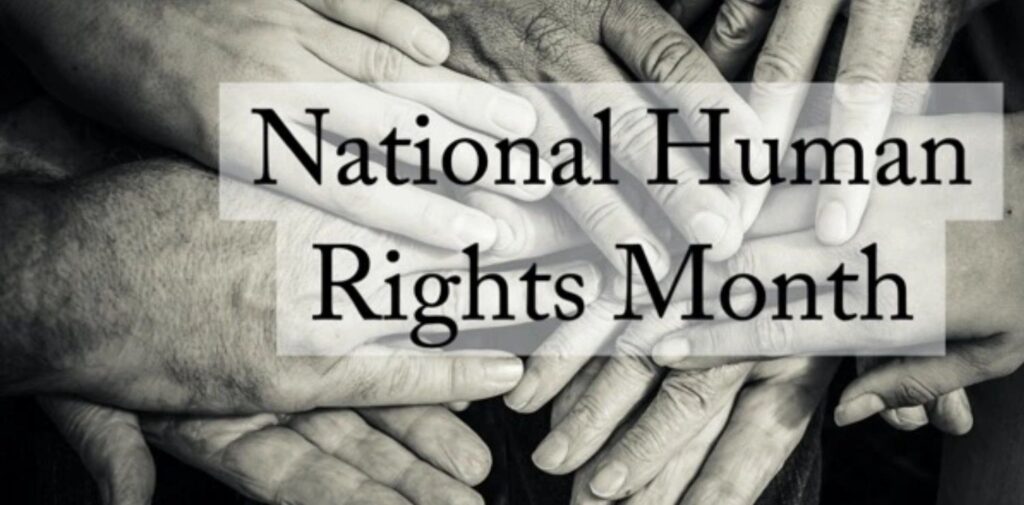
Human Rights and Their Importance
Human rights refer to the basic rights and freedoms that belong to every person simply because they are human. These rights are universal, inalienable, and inherent to all individuals, regardless of where they live, their nationality, or any other characteristic. Some of the most fundamental human rights include the right to life, liberty, and personal security; the right to freedom of thought, conscience, and religion; and the right to work, education, and participate in the cultural life of the community.
For India, a country with diverse cultures, religions, languages, and traditions, the concept of human rights is particularly important. The Indian Constitution guarantees certain fundamental rights to every citizen, including the right to equality, freedom of speech and expression, and protection from discrimination and exploitation. These rights serve as a foundation for the values of justice and fairness in Indian society.
The Universal Declaration of Human Rights (UDHR)
The UDHR, adopted by the United Nations General Assembly on December 10, 1948, plays a pivotal role in global human rights efforts. This document laid down 30 articles that cover a wide range of civil, political, economic, social, and cultural rights. Some key articles in the UDHR that are especially relevant to India and its citizens include:
- Article 1: All human beings are born free and equal in dignity and rights.
- Article 2: Everyone is entitled to all the rights and freedoms set forth in this Declaration, without distinction of any kind.
- Article 7: All are equal before the law and are entitled without any discrimination to equal protection of the law.
- Article 25: Everyone has the right to a standard of living adequate for the health and well-being of themselves and their family, including food, clothing, housing, and medical care.
These articles form the basis of a human rights framework that applies globally, and many countries, including India, have built their own legal and social systems around these principles.
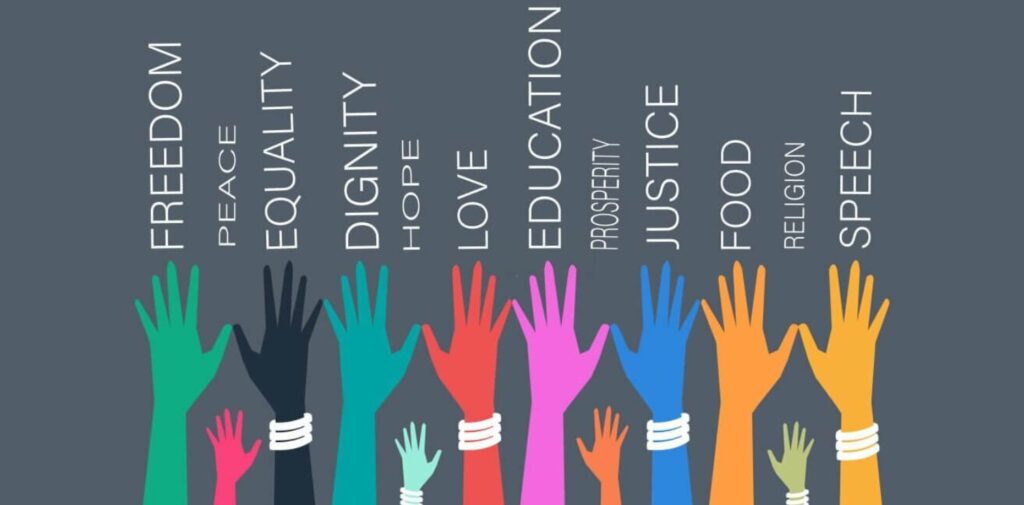
Human Rights in the Context of India
India’s struggle for independence from British colonial rule was also a fight for the basic rights and freedoms of its people. After gaining independence in 1947, India adopted the Constitution of India in 1950, which enshrined the rights of its citizens. The Constitution guarantees Fundamental Rights under Part III, including:
- Right to Equality (Article 14-18): Everyone is equal before the law, and no one can be discriminated against based on religion, race, caste, sex, or place of birth.
- Right to Freedom (Article 19-22): This includes the freedom of speech, assembly, association, and the right to move freely within the country.
- Right Against Exploitation (Article 23-24): This ensures that no person is subjected to forced labor or human trafficking.
- Right to Freedom of Religion (Article 25-28): Every person has the right to freely practice, profess, and propagate their religion.
- Cultural and Educational Rights (Article 29-30): This protects the cultural and educational rights of minorities.
While these rights are legally guaranteed, their protection and enforcement remain an ongoing challenge. India is a diverse country, and issues such as caste discrimination, gender inequality, and religious intolerance continue to affect the realization of human rights for many of its citizens.
Challenges to Human Rights in India
Despite the legal frameworks in place, there are significant challenges to the protection of human rights in India. Some of the key issues include:
- Caste Discrimination: Although untouchability has been abolished under the Indian Constitution, caste-based discrimination continues to affect millions of people, particularly in rural areas. Dalits, who are historically marginalized, face discrimination in education, employment, and access to public services.
- Gender Inequality: Women and girls in India still face widespread discrimination and violence. Issues like child marriage, domestic violence, sexual harassment, and unequal access to education and healthcare remain prevalent. The fight for gender equality is one of the most important human rights challenges in the country.
- Religious Intolerance: India is a multi-religious country, but religious minorities often face discrimination and violence. The rise in religious intolerance and hate crimes against minorities, particularly Muslims and Christians, has been a growing concern in recent years.
- Child Labor: Despite legal protections, child labor continues to be a significant issue in India. Many children are forced into work in industries such as agriculture, mining, and domestic service, depriving them of their right to education and a healthy childhood.
- Human Rights Activism: Human rights defenders and activists in India often face threats, harassment, and violence for speaking out against violations. Many activists working on issues such as environmental protection, human rights, and social justice are at risk of being silenced.
The Role of Civil Society and Government
Both civil society and the government play critical roles in the promotion and protection of human rights in India. Civil society organizations (CSOs), non-governmental organizations (NGOs), and grassroots movements have been at the forefront of advocating for human rights and social justice. These organizations work on a variety of issues, including gender equality, education, child protection, and environmental justice.
The government, on the other hand, has an obligation to uphold the rights enshrined in the Constitution and international human rights treaties. While India has made progress in various areas, it must continue to strengthen its legal systems, provide better access to justice, and ensure that all citizens have equal opportunities to exercise their rights.
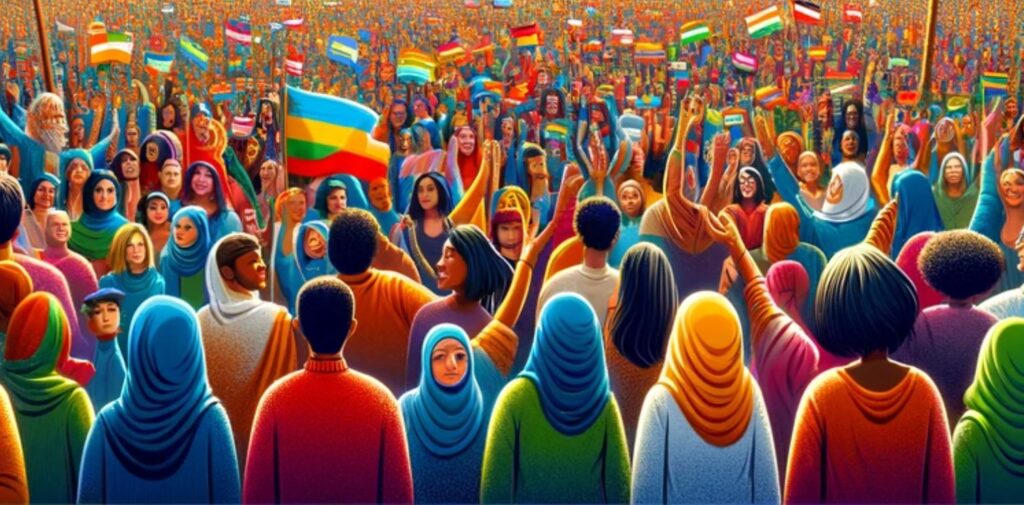
How Can We Celebrate National Human Rights Month?
National Human Rights Month is not just about reflecting on human rights; it is also an opportunity to take action. Here are some ways in which individuals and communities can participate in this important month:
- Educate Yourself and Others: Understanding human rights is the first step in protecting them. Learn about the rights that everyone is entitled to, and share this knowledge with others in your community.
- Support Human Rights Organizations: Many organizations are working tirelessly to promote human rights in India. You can support these groups through donations, volunteering, or by simply spreading awareness about their work.
- Stand Up Against Injustice: Whenever you witness human rights violations, whether it is discrimination, violence, or exploitation, stand up and speak out. It is important to create a culture where everyone feels responsible for upholding the rights of others.
- Engage in Discussions: Participate in discussions about human rights issues on social media, at school, or within your community. These conversations can help to raise awareness and mobilize action for change.
- Support Government and Legal Reforms: Advocate for stronger legal protections for human rights. Push for policies that promote equality, justice, and access to basic services for all citizens.
Conclusion
National Human Rights Month serves as a reminder that human rights are not just legal concepts or political ideologies; they are the foundation of a just and equitable society. In India, where diversity and inequality often coexist, it is crucial that every individual’s rights are respected and protected. This month, let us take time to reflect on the progress made, acknowledge the challenges we still face, and work together to create a world where every person can live with dignity, freedom, and equality.

